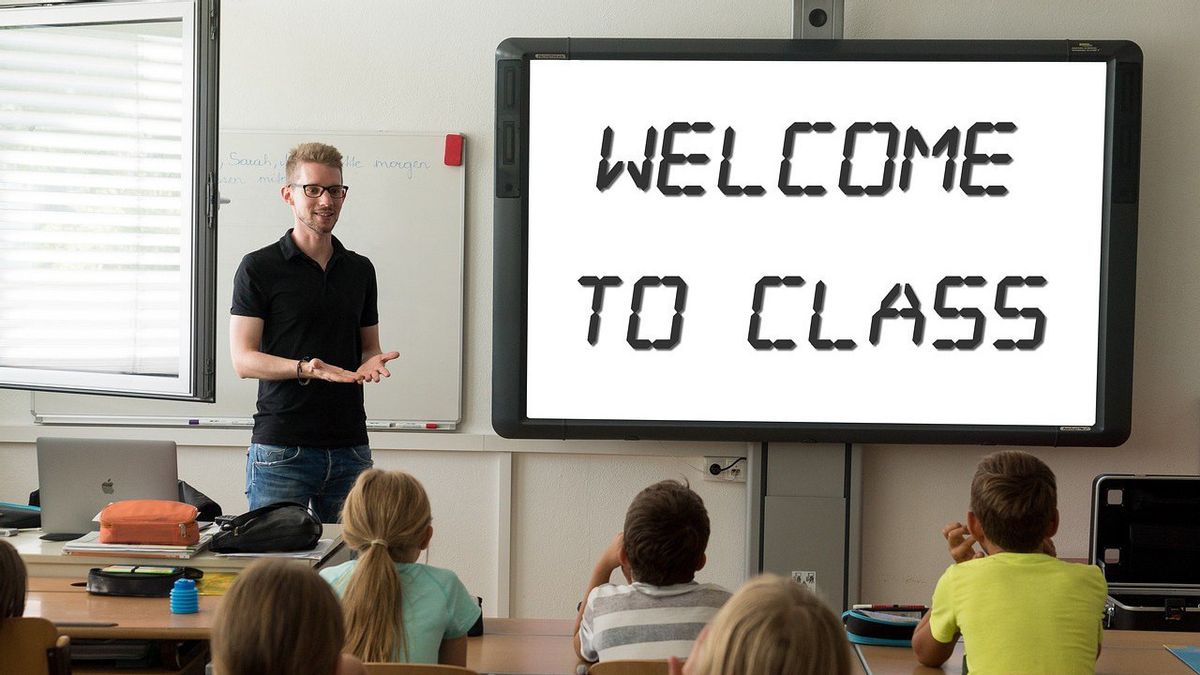YOGYAKARTA - One of the serious obstacles that may be encountered in class is the teacher's way of dealing with students' bad behavior. Behavior issues not only affect the teaching and learning process and class control, but also inhibit overall class productivity.
With problematic behavior, students usually don't do just because they want'. Often there are reasons behind their behavior or maybe it's the only way they can tell that something is wrong.
What teachers must be aware of, all behavior is a form of communication. Therefore, it is important for those of you who work as educators to understand the causes of these behavioral problems and understand what strategies are effective in overcoming them. Reporting from the Education page, look at the steps below.
The most effective explanation is by showing. You can be the role model of the behavior you expect from students. For example, if you want them to be orderly, you can set an example by always starting classes with on time.
When you want them to learn to consider the feelings of classmates, of course, you must first give an example if you also consider their feelings and validate any feelings they feel.
You can also discuss with students at the beginning of the semester about what behaviors are acceptable and unacceptable in class. This agreement is part of the class management that you can apply.
Often the problematic behavior shown by students is not the real behavior, but only the expression of the feeling. It is very important for you to be able to understand the students' true desires behind their problematic behavior.
For example, a student who suddenly screams in class, this could be an expression of his frustration because he doesn't get the proper attention. For this reason, you can take a short break to focus on the student. Next ask about his feelings and desires calmly.
Similar goals can have a different impact when delivered in different sentences. Instead of saying the sentence, 'Don't be nosy with your friends!', it would be better if you said, 'Interaction and play well with friends, yes.' Using positive sentences in giving instructions will yield better results for students' mentality.
SEE ALSO:
Instead of trying to get rid of the negative habits or behavior that occur in class, you should focus on creating positive habits/behavior in class. Identify the positive behavior and habits you want from class and then think about ways to communicate this to all students.
You can open a discussion involving classes, invite students to give their opinion about the class they want. Next, make a class agreement reminder in the form of a mini poster and put it on the classroom wall.
Activities that encourage student involvement will invite better results than dictating what they should do. Student involvement in this matter is important, because it fosters a sense of belonging to them and a greater commitment to follow the deal itself.
If anything, you can also take advantage of the room. In essence, there is special space and time for students to calm down after they show a difficult behavior. This is a kind of time out' for students so they can reflect. In addition, give them an understanding that this is not a punishment.
If there is, students can also bring their favorite items to help them feel calm. When doing self-reflection, students also learn to better recognize and be aware of their feelings and actions.
The best support system for you as a teacher is parents. Maintaining regular communication with parents is of course very important to manage problematic behavior from students. Keep parents in the circle when their children have problems. So you can communicate this and make sure that they apply the same rules at home as those you have at school.
Well, that's a review of how teachers deal with students' bad behavior that can be applied. Hopefully useful! Visit VOI.id to get other interesting information.
The English, Chinese, Japanese, Arabic, and French versions are automatically generated by the AI. So there may still be inaccuracies in translating, please always see Indonesian as our main language. (system supported by DigitalSiber.id)


















